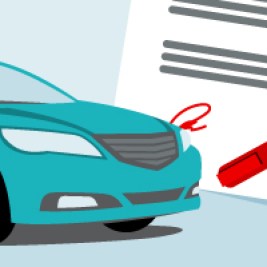
Keeping up with payments is an essential part of managing your money, but it isn’t always easy.
A change in circumstances, such as with a job, the arrival of medical bills or a rise in the cost of living, may leave you facing a difficult month or period of months ahead.
If you’re concerned that you won’t be able to make all of your payments, being proactive can take you a long way. Prioritizing your bills and, if necessary, asking for help will put you in a better place to avoid or limit the effects of late or missed payments which can include late fees, added interest charges, impact on your credit score, and even the loss of a service or possession.
The Consumer Financial Protection Bureau recommends these straightforward steps to help ease the pressure and see you through the month.

Make a list of your bills
Start by setting out what each of your bills is for, their amount and when they’re due. Then ask yourself which ones help to protect your job, such as transportation and childcare, which are for your home, including rent or a mortgage payment, and those that safeguard your health, like health insurance. Also on the list should be any legal obligations you might have, from child support to fees or fines. Having done that, think about what might happen if you don’t pay each of those bills as you decide how to order your payments.

Get in touch with your service providers
Many companies and service providers offer support programs for customers who are experiencing problems with making their payments that can lighten the load. Consider getting in touch to learn more.

Find out if you can change a due date
Another handy tip is to see if you can change the due dates on some of your bills so that you can spread out your payments over the month and avoid a lot of expenditure at once. Alternatively, you might be able to split a large monthly payment into two payments and space them apart.

Don’t ignore the problem
If you definitely can’t make a payment, remember to contact the company you owe to let them know and to explain your situation. It’s also worth having an idea of when you’ll be able to pay. Even if a company doesn’t offer a support program, many are willing to listen and try to find a way to help you get back on track.

Keep to your plan
Depending on your situation, you might be receiving messages from different service providers asking for payment or perhaps you’re still deciding how to order your payments. Once you have a plan, you may need to stay focused on the priorities you’ve outlined to fulfill all of your commitments.
Support when you need it
While making timely payments is in your best interest, Santander Consumer USA understands that there may be times in life when this is challenging. If you have payment concerns, we have a variety of resources and channels that may be able to help, and we’re ready to discuss a customer’s ability to maintain their account going forward. Visit our Help and Support page for answers to frequently asked questions and further information.



